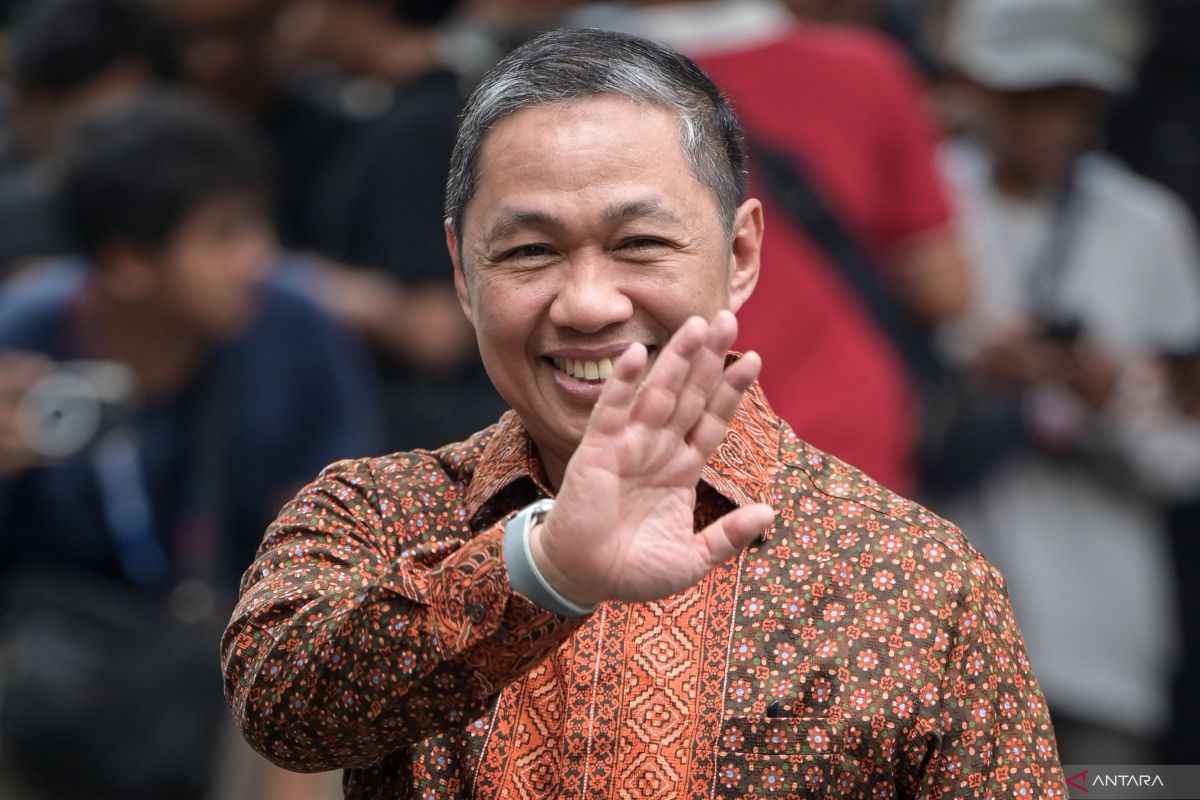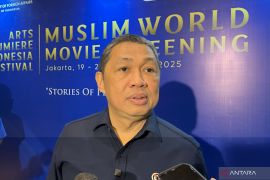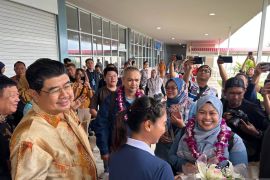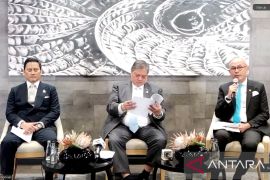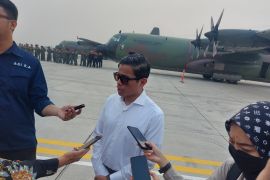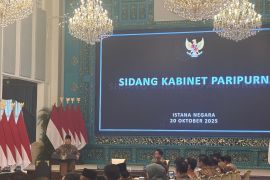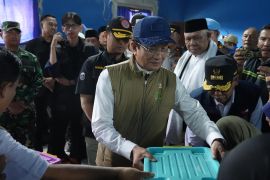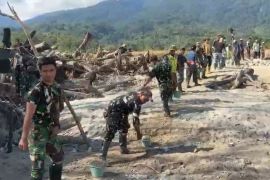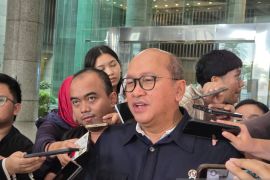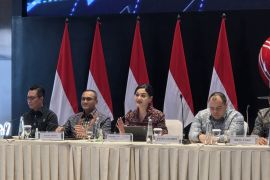After the inauguration ceremony, President Prabowo announced the names of the ministers and deputy ministers in his Red and White Cabinet at the Merdeka Palace in Jakarta that Sunday night.
While making the announcement, Matta was introduced by the President as deputy minister of foreign affairs who will assist Foreign Affairs Minister Sugiono.
Prabowo also picked the Permanent Representative of the Republic of Indonesia to the UN, Arrmanatha Nasir, and the Indonesian Ambassador to Germany Arif Havas Oegroseno, as deputy ministers of foreign affairs.
Thus, during the five-year term of the government, Sugiono will be assisted by three deputy ministers. Deputy Foreign Minister Matta will focus on foreign affairs related to the Islamic world.
Befitting appointment
International relations observer Teuku Rezasyah stated that Matta's appointment as deputy foreign minister, with a focus on issues in the Islamic world, is highly appropriate.
According to the Bandung-based associate professor at Padjadjaran University, Matta possesses a clear and detailed vision for Indonesia, along with a broad track record in international organizations.
Furthermore, Rezasyah noted that Matta has long been active in international efforts to advance society and promote the glory of humanity.
As deputy minister of foreign affairs, Matta is expected to foster genuine cooperation with groups of Islamic countries in various international organizations, including the Organization of Islamic Cooperation (OIC) and the Arab League.
Such cooperation can be developed in fields such as investment, trade, technology, education, health, and dialogue between civilizations, added Rezasyah, who also lectures at the Bekasi-based President University.
With the new position, Matta is expected to continue to explore the fundamental issues faced by the Islamic world, including the low all criteria in the Sustainable Development Goals (SDGs), especially education and public welfare, interlocking technology, and low human resource availability, as well as the organized implementation of sustainable development.
He is also anticipated to play an active role in various summits, such as the OIC, the Non-Aligned Movement, and Arab League summits, while upholding the spirit of the Ten Principles of Bandung, which are still considered relevant.
The Ten Principles of Bandung, established at the 1955 Bandung Conference, emphasize respect for human rights, self-determination, sovereignty, and non-interference, promoting equality and peaceful coexistence among nations with diverse social systems.
These principles advocate for anti-colonialism, economic cooperation, and cultural exchange, aiming to foster solidarity and collaboration among Asian and African countries in their struggles for development and independence.
There is also hope that he will foster solidarity among Muslim communities worldwide to accelerate the independence of the Palestinian nation, striving for it to become a sovereign and united state with territorial boundaries recognized by the United Nations (UN).
Deputy Minister Matta is expected to assemble a moral coalition at the global level to reform the UN Security Council, which, until now, has only five countries with veto rights.
Meanwhile, Middle East expert at Indonesia University, Muhammad Syaroni Rofii, said that given Matta's background as an activist and chairperson of a religious political party, he has valuable insights in international relations.
"In terms of insight, Matta has valuable perspectives in international relations. Regarding issues related to the Islamic world, it is ultimately the authority of the Minister of Foreign Affairs, as the Foreign Minister is the policymaker," he added.
Matta can use his new role to mobilize the potential of the OIC, the D-8 Organization for Economic Cooperation, and other similar organizations to support Indonesia's interests, according to Rofii.
"The Islamic world has great potential, but it has not been worked on systematically, and continuously. Diplomatic meetings are not enough; there must still be economic and other activities," he said.
Profile
Muhammad Anis Matta was born in Welado, Bone, South Sulawesi, on December 7, 1968. The Indonesian politician has been chairperson of the Indonesian People's Wave Party (Gelora) since 2019.
Matta obtained a bachelor's degree in sharia from the Islamic and Arabic Sciences Institute of Indonesia (LIPIA Jakarta) in 1992.
After graduating, he became a lecturer on Islamic religion for the Extension Program of the Economic Faculty of the University of Indonesia. He was also politically active and preached books.
His political career began when he joined and became one of the founders of the Prosperous Justice Party (PKS) in Jakarta on July 20, 1998. At PKS, Matta served as secretary general for three terms, namely from 2003–2005, 2005–2010, and 2010–2013.
He was later appointed by the PKS Syuro Council as party president from February 1, 2013, to August 10, 2015.
Before becoming the president of PKS, Matta served as a member of the national parliament (DPR) from 2004 to 2009 and 2009 to 2014, representing the South Sulawesi I electoral district.
During his second term, Matta also served as Deputy Speaker of the DPR. He resigned after being appointed president of the PKS.
Then in 2017, Matta and Fahri Hamzah, also a member of PKS, founded a community organization Gerakan Arah Baru Indonesia (Garbi).
That organization later evolved into Gelora, which was founded on October 28, 2019. Matta has served as its general chairperson until now.
Related news: Palestine issue to be main focus of Deputy FM Anis Matta
Related news: Sugiono, the new helmsman of Indonesia's diplomacy
Translator: Asri Mayang Sari
Editor: Tia Mutiasari
Copyright © ANTARA 2024
